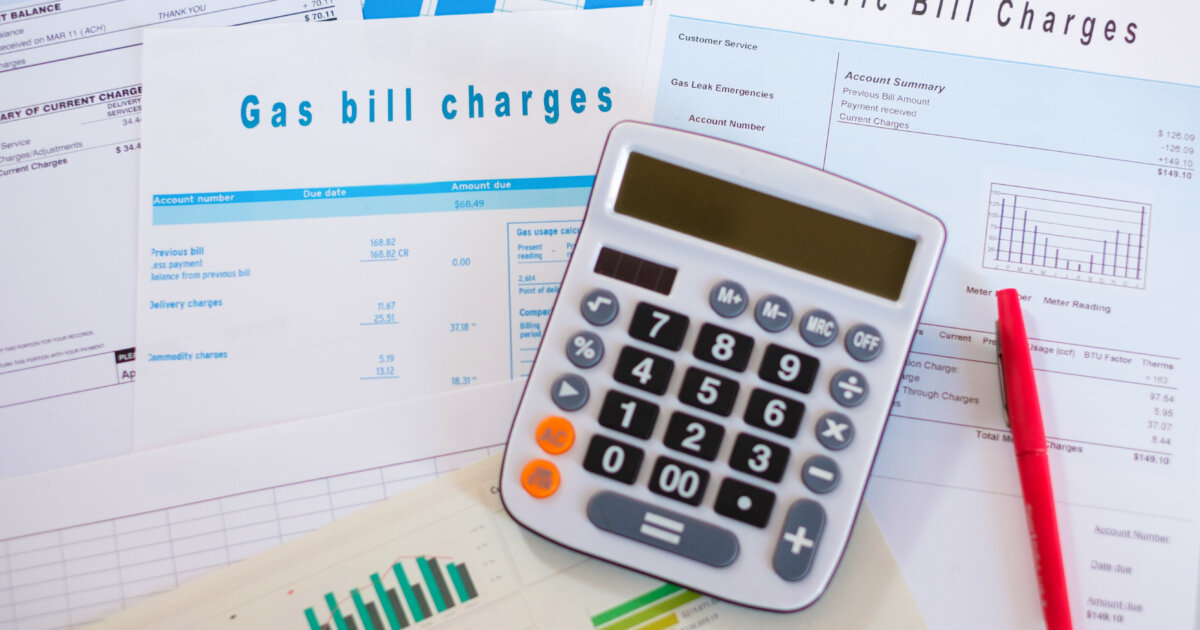As many unsuspecting customers have learned through experience, electricity usage is higher during the summer months, and heating costs increase amid the cold of winter. In practice, these points in the calendar produce an energy-bill spike, to the detriment of otherwise carefully crafted budgets and spending plans.
But the first step toward managing and potentially reducing energy bills is understanding the causes of their seasonal hikes and benefiting from expert assistance. Here’s an in-depth look at the contributing factors of — and solutions to fix — increasing energy charges.
Why Summer Electricity Usage Is Higher — and What It Means for Customers
In the Northern states, where the temperature soars between June and September, summer electricity usage is higher due to the widespread utilization of air conditioning. An uncooled home can prove uncomfortable or downright dangerous depending upon the weather, and for this reason and for relaxation’s sake, AC is extremely popular.
This extreme popularity results in peak demand — another contributing factor to summer’s high energy bills — and air-conditioning units must work especially hard to keep homes cool when it’s sweltering hot outside.
Further driving summer electricity costs for homes are pools (which require ample energy to run) and the presence of kids, who leave more lights on, use more devices (televisions, computers, game systems, etc.), and sometimes tend to leave windows and/or doors open, including after heading outside to play. Allowing the hot summer air to enter a home freely will cause its AC unit to work harder to maintain the thermostat-set temperature.
Heating Costs Spike During Winter — Here’s Why
As new and longtime homeowners alike will attest to, winters can be frigid and unforgiving. But warm, inviting homes offer respite from the bitter cold and make outdoor memories, from building snowmen to sledding and much in between, all the more special.
Unfortunately, homeowners can also vouch for the dramatically increased heating bills (in urban areas, this is primarily the result of growing natural-gas use) that the winter months bring with them. During this sizable portion of the year, heating units must run more frequently and remain running for longer periods (thereby driving up energy costs), but wood-burning stoves and fireplaces can help to warm homes in suburban and rural areas.
Greater demand during the winter is also to blame for expensive heating bills, as most homes today use central heating systems to keep occupants comfortable. Inversely, with AC systems receiving little or no use during winter, electricity bills for homes that use gas heating (as opposed to electric air-source heat pumps) do moderate a bit.
Though poorly insulated basements tend to remain relatively cool during the summer months — meaning that they don’t put as much strain on AC systems — poorly insulated basements can let in a substantial amount of cold air during the winter, thereby causing heating units to up their runtime and energy consumption to compensate. The same is true of attics, crawlspaces, and other (often uninsulated) areas.
Ahead of the Curve: How Customers Can Manage and Reduce the Cost of Their Summer Electricity Usage and Winter Heating Bills
Unbeknownst to many, most homes are under-insulated and suffer from increased electricity and heating expenses as a result. When properly outfitted with insulation, homes reduce wear and tear on their HVAC units and lower overall energy costs.
Similarly, air sealing, referring to a process that closes cracks, gaps, and holes around windows doors, chimneys, plumbing, and other vulnerable parts of homes, can enable air-conditioning and heating units to operate at their best during the summer and winter months, respectively.
That’s because air sealing prevents internal air from escaping homes and stops external air from entering homes. Consequently, with the cool air produced by AC units remaining indoors, the system won’t have to work as hard (or use as much electricity) to maintain the desired temperature; the same is true for heating units during the winter.
For Those Seeking Energy Efficiency, Expert Assistance Is a Must
Notwithstanding the cost and comfort advantages associated with employing energy-efficient measures throughout homes, interested individuals should enlist experts to provide the related services. In short, reputable teams charge fair prices for their work and strive to provide the best possible services to clients — setting their homes up for energy success in the summer and winter moving forward.
Before diving into the multifaceted process associated with making homes energy efficient, however, reputable professionals will conduct an energy audit to identify the exact areas where improvements are needed. Generally requiring under an hour to complete, energy audits feature experienced staff inspecting homes’ insulation, HVAC system performance, comfort levels, and potential areas that can benefit from attention, including the attic, basement, and/or any crawlspace(s) as well as water heaters.
From there, the same professionals will discuss their findings with clients so that they can jointly make the best possible decisions regarding homes’ energy efficiency. Exact plans of action vary depending upon the unique home — and the unique needs — in question.
Both high-quality insulation and air sealing will render homes more energy efficient, but these valuable tools work best when utilized together. Experts are standing by to optimize homes’ sealing, insulation, and HVAC systems, which, in addition to ensuring energy efficiency amid the heat of summer and the chill of winter, will improve air quality and reduce energy costs.
The Bottom Line: Why Energy Efficiency Is Invaluable For Homeowners
For many homes, heating bills are more expensive than necessary during the winter, and electricity usage is higher than necessary during the summer. Lacking insulation, inefficient cooling and heating equipment, and poor air sealing all cause homes to lose energy efficiency, which means their heating and cooling systems must compensate (and use more energy), resulting in higher energy costs and more stress on equipment.
But this less-than-ideal reality doesn’t have to be the norm. By consulting the team of dedicated and attentive energy experts and B&E Energy Solutions, any homeowner can enjoy the benefits of energy efficiency, including more comfortable living areas, higher-quality air, less wear and tear on HVAC units, and, perhaps most significantly, reduced energy bills.
Energy experts are standing by to conduct an energy audit and address any other questions and concerns clients may have. A small upfront investment today can pay dividends in the long term, and there’s never been a better time to take steps toward achieving energy efficiency by reaching out to trusted energy pros today.





